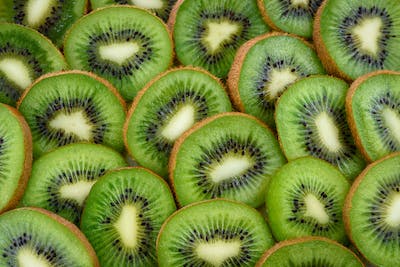Kiwi fruit, also known as Chinese gooseberry, is a small, nutritious fruit that is rich in essential vitamins, minerals, and dietary fiber. While kiwi can be a healthy addition to a balanced diet, it's important to note that no single food alone can cause weight loss. Weight loss occurs when you consume fewer calories than your body needs and create a calorie deficit.
However, kiwi can be a helpful part of a weight loss plan for several reasons. Firstly, it is relatively low in calories. One medium-sized kiwi contains approximately 50-60 calories, making it a satisfying snack option that won't contribute significantly to your calorie intake.
Secondly, kiwi is a great source of dietary fiber. Fiber plays a crucial role in weight management as it helps you feel full and satisfied after meals, potentially reducing the overall amount of food you consume. The fiber in kiwi also aids in digestion and promotes a healthy gut, which is essential for overall well-being.
Furthermore, kiwi is packed with nutrients that are beneficial for maintaining overall health during weight loss efforts. It is an excellent source of vitamin C, vitamin K, vitamin E, and several B vitamins. These vitamins are essential for supporting your body's metabolism and energy production, which can be important when trying to lose weight.
Additionally, kiwi contains antioxidants that help protect your cells from damage caused by free radicals. While this doesn't directly contribute to weight loss, it supports your overall health, which is crucial for maintaining a balanced weight.
To maximize the potential weight loss benefits of kiwi, it's important to incorporate it into a well-rounded, calorie-controlled diet that includes a variety of fruits, vegetables, lean proteins, whole grains, and healthy fats.
It's worth noting that individual results may vary when it comes to weight loss, and it's always best to consult with a healthcare professional or registered dietitian for personalized advice and guidance based on your specific needs and goals.
In conclusion, while kiwi alone cannot cause weight loss, it can be a valuable addition to a balanced diet and weight loss plan. Its low-calorie content, high fiber content, and rich nutrient profile make it a nutritious snack option that can support your overall health and well-being during your weight loss journey.
In addition to its low-calorie content and high fiber content, kiwi also has a low glycemic index (GI). Foods with a low GI release glucose more slowly into the bloodstream, providing a steady supply of energy and helping to regulate appetite. This means that kiwi can help keep you feeling fuller for longer and prevent sudden spikes and crashes in blood sugar levels, which can be beneficial for weight management.
Moreover, kiwi contains a good amount of water. Foods with high water content, such as fruits and vegetables, tend to be lower in calories and can help increase satiety. By including kiwi as part of a balanced diet that incorporates other water-rich foods, you can help control your calorie intake and feel more satisfied.
It's also worth mentioning that kiwi can be a flavorful and refreshing alternative to higher-calorie snacks or desserts. Instead of reaching for sugary treats, incorporating kiwi into your diet can provide natural sweetness and a burst of flavor while being lower in calories. This can be particularly helpful if you're trying to reduce your intake of added sugars, which can contribute to weight gain.
When including kiwi in your weight loss plan, it's important to consider portion sizes and overall calorie intake. While kiwi is nutritious, consuming excessive amounts can still contribute to calorie intake, which may hinder weight loss efforts. Moderation and portion control are key factors in any healthy eating plan.
In summary, while kiwi can be a beneficial addition to a weight loss diet due to its low-calorie content, high fiber content, low glycemic index, and water content, it is important to remember that weight loss ultimately depends on creating a calorie deficit through a combination of healthy eating and regular physical activity. Kiwi can certainly be a part of a balanced and nutritious weight loss plan, but it should be combined with other healthy foods and lifestyle choices to achieve sustainable and long-term weight loss goals.



This is good 👍
ReplyDelete